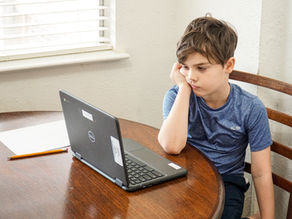Meet our Science Presenter, Alina Ivan
- Jul 21, 2022
- 3 min read
Updated: May 4, 2025
Have you always had a love for science?

I’d say so! Early on, I was particularly interested in natural phenomena. This was the first science topic that piqued my interest. I can vividly remember instances when I was asking my parents incessant questions about how clouds formed, why it snowed in some parts of the world and not in others and why leaves turned yellow in autumn. I found it all fascinating, and even started a ‘science’ notebook where I was drawing and colouring plants and planets and documenting my latest learnings. I must have been about 9 or 10!
What do you like about being a Braintastic! Science presenter?

Nothing tops seeing the amazement on people's faces when they experience an illusion that challenges their understanding of the brain! I also love it when audience members join me on stage and really enjoy the Q&A part. I love how interactive all our science shows for schools are!
What do you do for work when not presenting for Braintastic!?

I help grow a mental health platform called Augmentive, which provides holistic mental health support through therapists, psychiatrists and nutritionists. I also contribute to DK books and do public engagement, some projects including a short animation about depression, a dance performance about mental health where the music is created by biometric data and a podcast associated with my previous work at the Institute of Psychiatry, Psychology and Neuroscience, King's College London.
What do you like doing in your spare time?
I love being in nature, be it rock climbing, going on hikes or dog walking. And when I’m indoors, I love oil painting - I find it very meditative and satisfying. I also really enjoy dancing - you'll often find me in a musical theatre class on a Saturday morning struggling to keep up with the pace! You might have already gathered that I also like exploring different disciplines and seeing the big picture, so you’re very likely to see me exploring a new hobby as well - I’m a very curious person!
Do you have a favourite quote?
"80% of success is showing up" - Woody Allen.

While there are a lot of people that are less questionable than Woody Allen, this quote often comes to mind. In school, I was often scared of putting my hand up despite knowing the answer - I was afraid I'd say something wrong and embarrass myself. I even passed up the opportunity to compete in olympiad contests feeling like I wasn't as prepared as I could have been, only to later see the questions and realise how well I could have done. So now I'm a big advocate of throwing oneself out there and not being afraid of laughing at one's own mistakes! You’ll never know how well you can do until you have a go.
Why do you think it’s important to help young people understand their brains?

Being able to understand how the brain works can empower young people with the tools to better understand themselves, and use this knowledge to fine-tune their instincts, develop resilience and nourish their mental wellbeing and get closer to fulfilling their ideals. Take memory, for example. If you knew that learning something and then sleeping on it helped you remember things better, or spacing the learning rather than cramming information before the exam and WHY this happens - wouldn't you be more likely to apply this to your revision?
What one big question about the brain would you like to know the answer to?
I would like to know exactly where and how are memories stored in the brain, and how they help us create a sense of self. While we know that memories are stored in the connections between neurons, there’s still a lot to be discovered. Also, whenever we think of a memory we change it: we update it, strengthen it or weaken it. Whichever way, it changes! It would be great to see how we can use these processes to help people heal from trauma.










